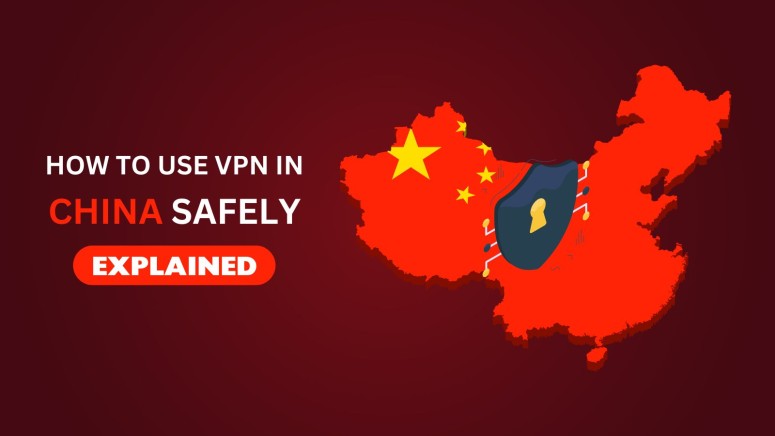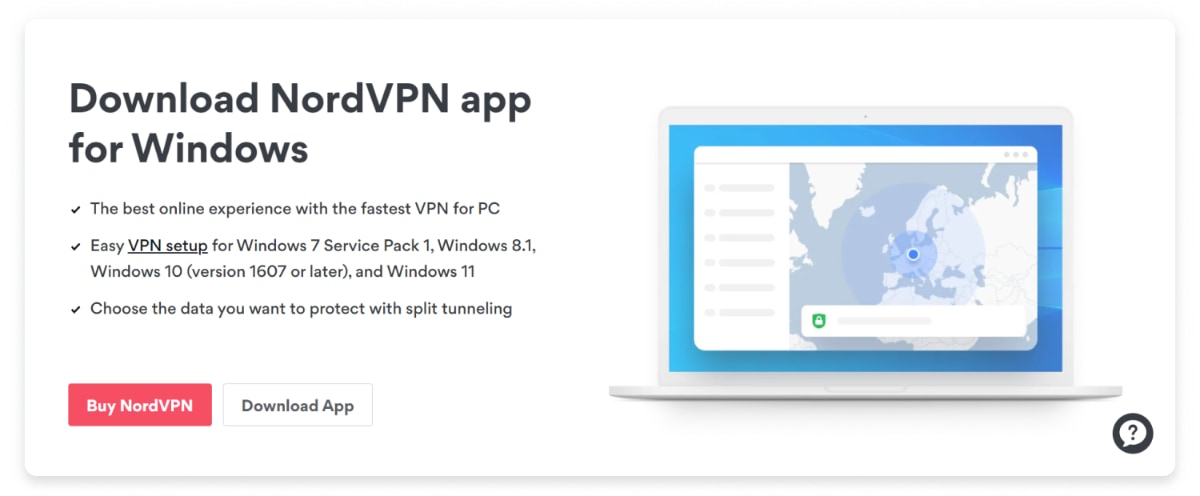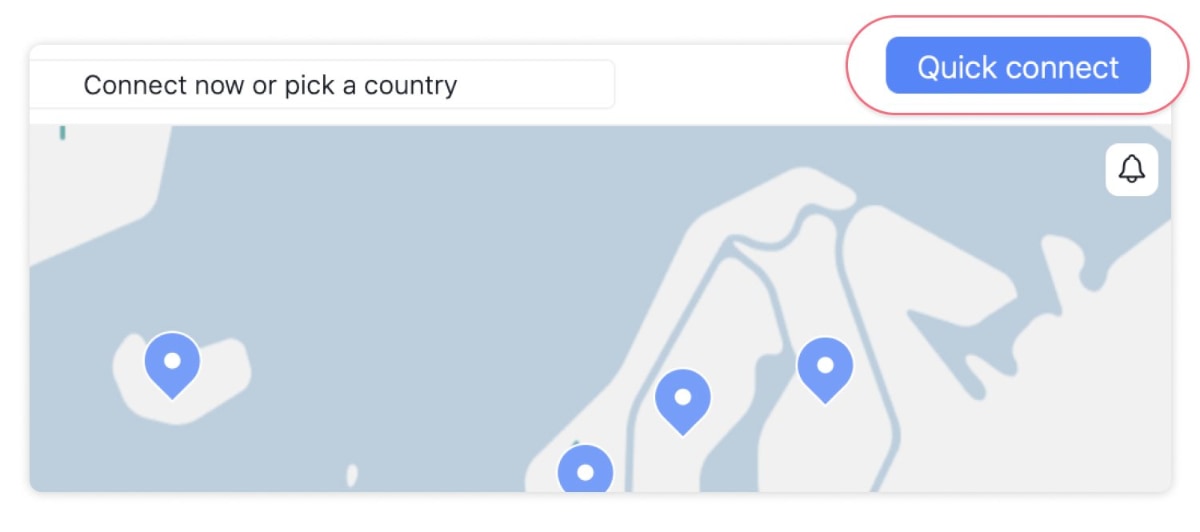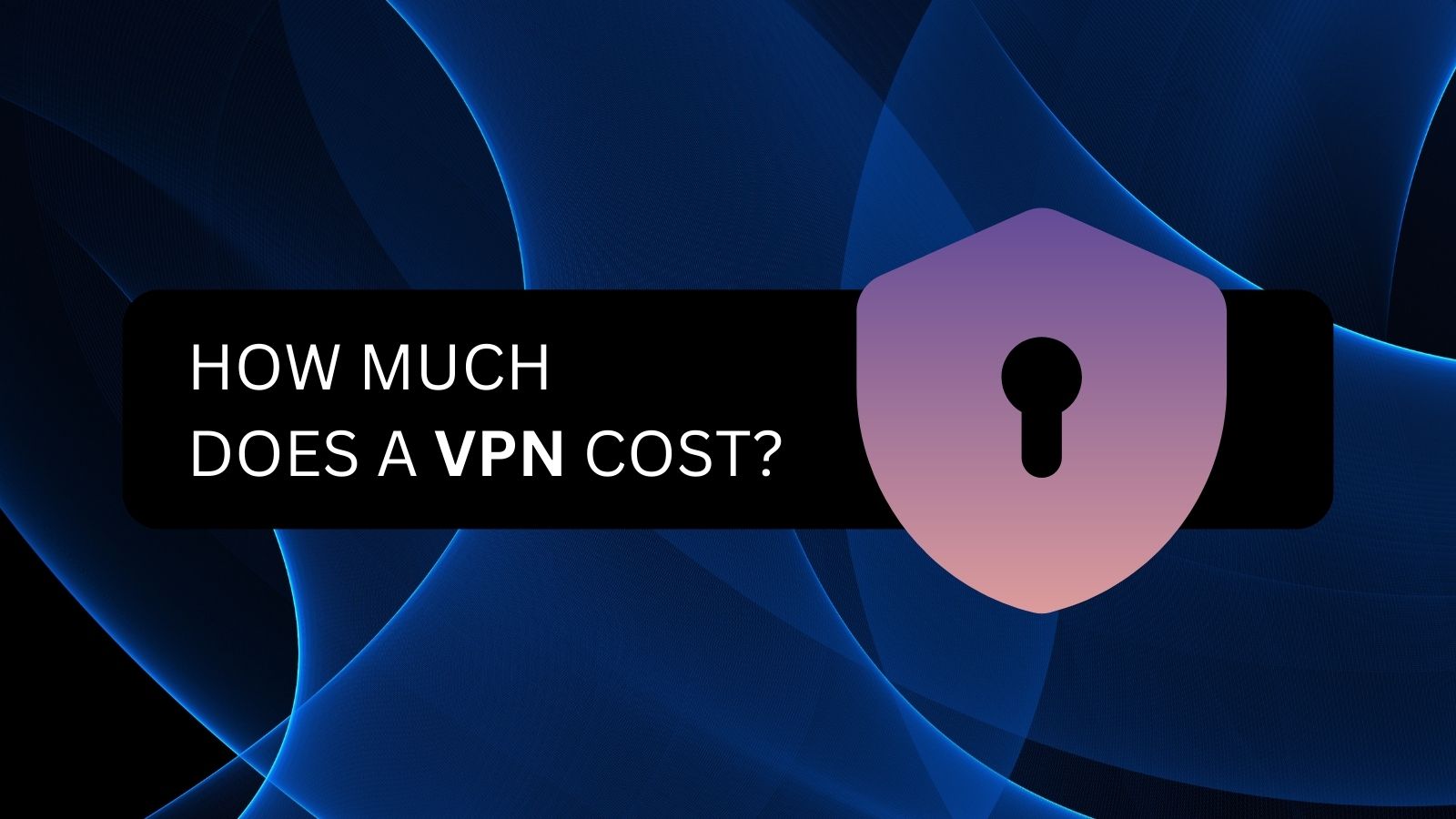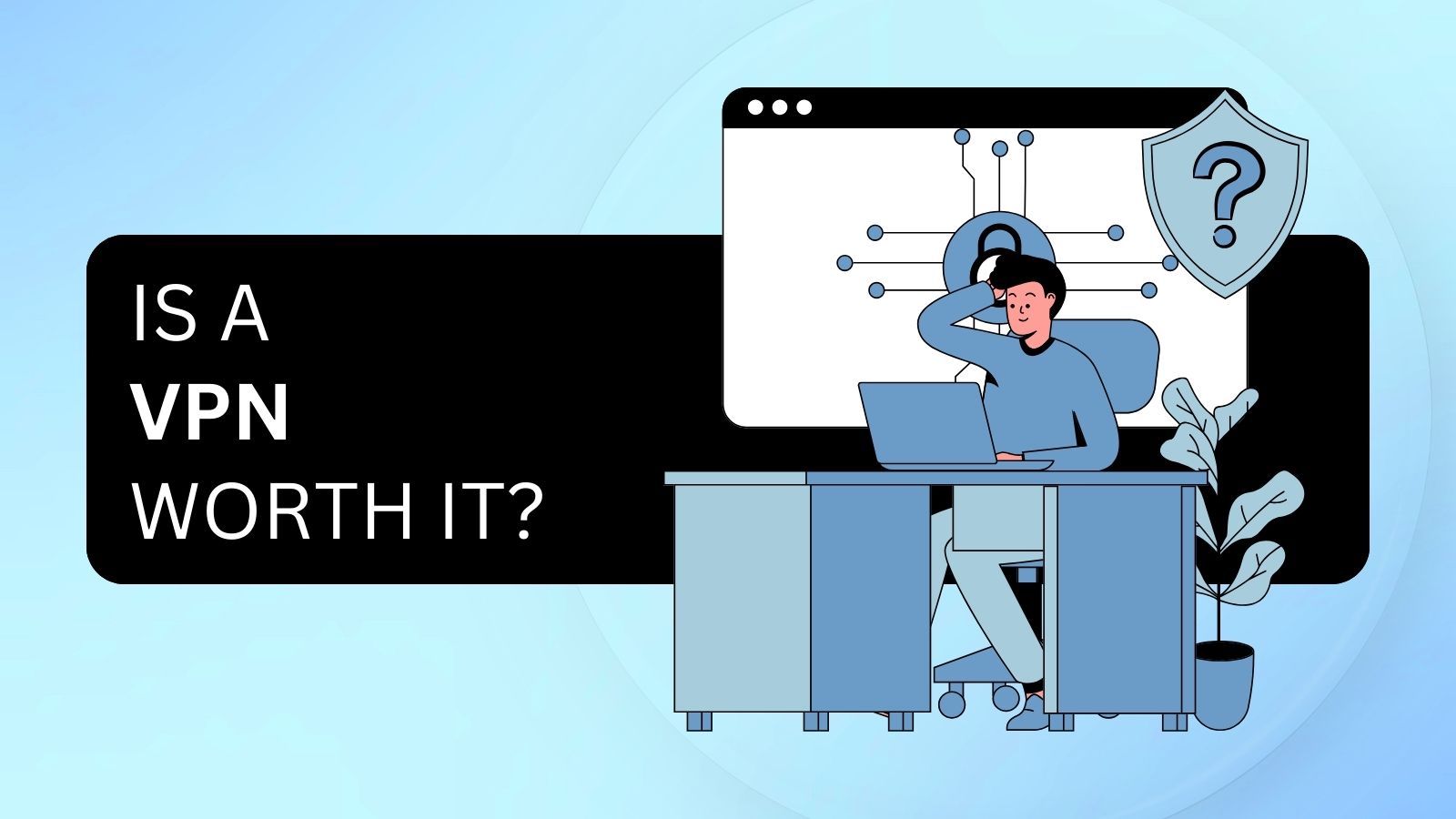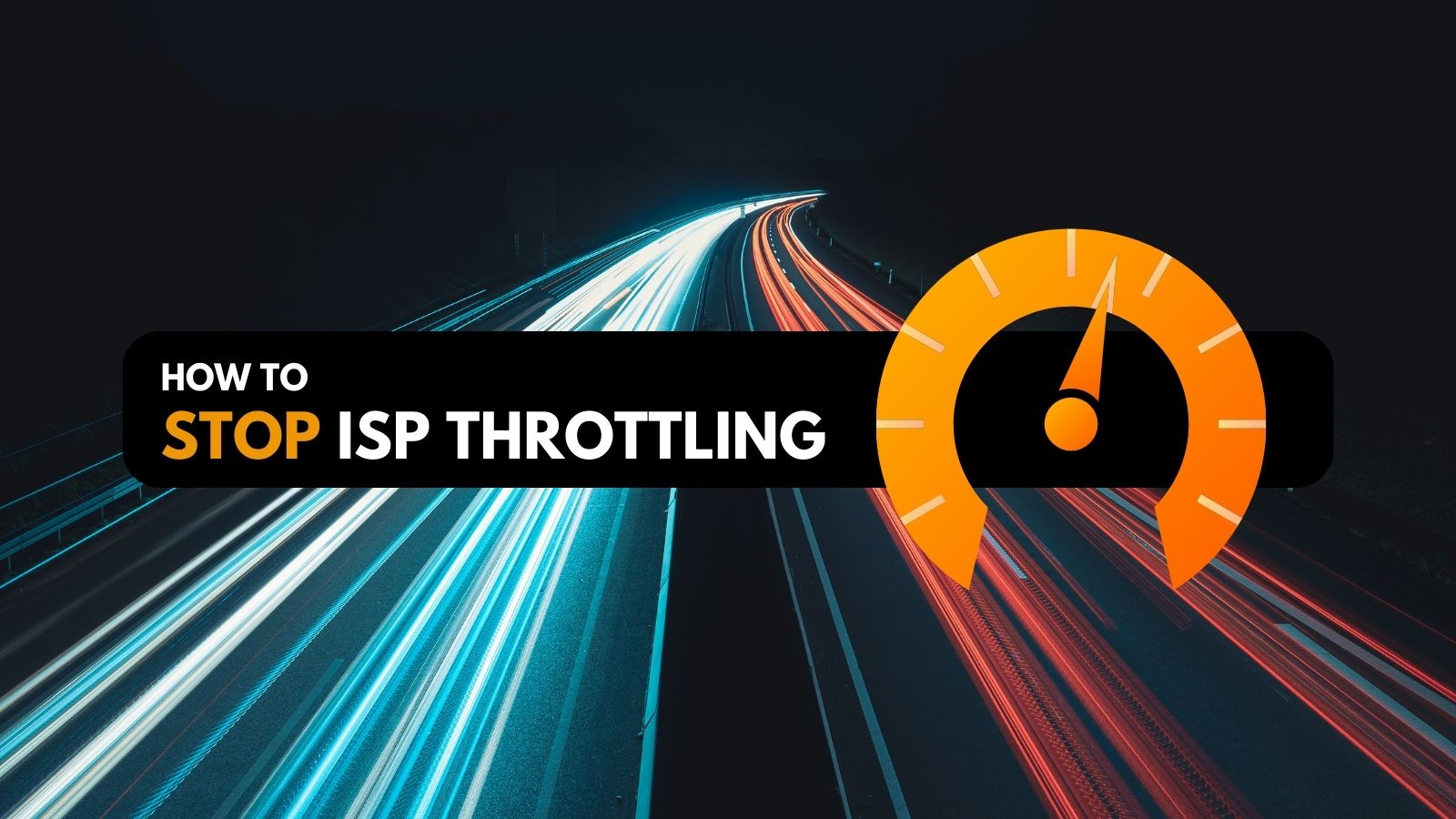
When you purchase through links on our site, we may earn an affiliate commission. Here’s how it works.
How to Download and Use a VPN in China in 2025?
Unlike most countries, China imposes heavy Web restrictions that affect both residents and travelers. The country's authorities have created the Great Firewall of China to filter outgoing and incoming connections. As a result, many of the world's most popular sites don't work there, such as Facebook, Google, YouTube, Instagram, Wikipedia, WhatsApp, Twitch, and more.
That said, it's no surprise that VPNs (Virtual Private Networks) have become hugely popular. However, China blocks VPNs through DPI (deep packet inspection), so finding a VPN that still works reliably is a very difficult task. In other words, you'll need to make an effort to find a VPN to unblock your access to the Web, safeguard your digital privacy, and communicate with those outside of China.
In this guide, we'll discuss the best VPN to use in China and show you how to download a VPN in China. We'll also explain why does China ban VPNs, what the country's VPN law says about VPNs, and talk about the punishments for using a VPN in the country. We'll finish with a round of helpful FAQs.
How to Use a VPN in China
To use a VPN in China, you need to subscribe to a proven VPN that works in the country, download its app, and then connect to a server outside the VPN. Here's our quick guide on using a VPN in China:
- Get a VPN proven to work in China (we recommend NordVPN).
- Download its software on your device (computer, phone, tablet, etc.).
- Install the VPN application, launch it, and then log in to your account.
- If obfuscated servers are present, we highly recommend using those.
- Connect to a VPN server outside China to unblock the Web.
- That's it! You can now browse the Web or use any Web-based app.
Why Do You Need a VPN in China?
You need a VPN in China to protect yourself against tracking and unblock your access to the Web. The Great Firewall of China tracks your every move, which means that Internet users in the country have absolutely no privacy. On top of that, hundreds of popular sites and online services worldwide are not available in China.
A VPN encapsulates your Web traffic, making it invisible to your Internet provider and your country's authorities. In addition, you can get a foreign IP address by connecting to a VPN server in a foreign country. That's how a VPN helps you bypass geo-blocks and China's censorship. In other words, a VPN makes your access to the Web safe, private, and open.
Of course, very few VPNs are capable enough to bypass China's anti-VPN systems. That's why we highly recommend NordVPN, which has proven to be the best VPN to use in China. It offers high-end security and servers in 85+ countries, so you'll get to unblock practically any website.
How to Download a VPN in China - 7 Tested Ways
To download a VPN in China, you need to find alternative ways to get the VPN software on your device. VPN websites are mostly blocked in the country, so you'll have to rely on alternative ways to visit your VPN provider's website or obtain VPN software in some other way.
For example, you can download your VPN app before going to China, use hotel Wi-Fi, or go with a mirror link (if your VPN provider offers that option). Also, you can use your home country's SIM card, sideload VPN files on your Android device, ask an acquaintance for setup files, or download VPN software while you're abroad. Let's take a closer look.
1. Download the VPN App Before Leaving for China
If you're planning a trip to China, the easiest way to download a VPN there is to do it before leaving. That way, you have it installed on your phone and ready to go when you arrive. Just visit your device's Play Store or iOS App Store and get the app from there. If you use a computer, install your VPN manually, and you'll have it ready to be used.
There have been cases of the Chinese police uninstalling VPN apps from people's phones. That likely won't happen to you, but if you want to have a backup, bring a USB flash drive or memory card with you that contains a copy of the VPN's installation files.
We recommend NordVPN, as it offers multiple ways to get its app on your devices. Aside from the official ways to install NordVPN's apps, you can also sideload them on certain devices, which allows you to have a backup copy before traveling to China.
2. Use Hotel Wi-Fi
Surprisingly, some hotels in China don't censor the Web so heavily. While you can't access everything you normally can in other countries, you can download VPNs, at least. The following hotels reportedly have unrestricted Internet access: Mariott, Pangy 7 Star, Intercontinental, Crowne Plaza, Hilton, Shangri-La, Wyndham, and Starwood.
If you're a tourist, you don't need to do anything special; just use the hotel's Wi-Fi, and you'll get to download a VPN in China without any fuss. If you're staying at an apartment or live in China, though, head over to the nearest hotel, grab a cup of coffee or beer at its cafe or bar, and use the Wi-Fi to get your VPN app.
3. Use Mirrored Sites
Many VPN providers offer mirrored websites to allow those from restricted countries to access their official website and get the software they need. Mirrored websites look identical to the original, except for their URL (which you can see in your browser's address bar).
That said, it's best to find mirrored websites by contacting your VPN's support. They need to send you a fresh and up-to-date list of URLs you can use. We're saying that because mirrored websites can easily be malicious, prompting you to download malware-infested software.
4. Use a SIM Card From Your Home Country
If you're traveling to China and have a foreign SIM card in your phone, you can set it to international roaming, which will give you access to your home country's Play Store/App Store. So, you'll be able to download a VPN just like you would back home.
Of course, keep in mind that roaming can be costly, and even though most VPN apps are small in size, the total expense could be high. Once you've downloaded your VPN app, you can switch to a Chinese SIM card, which won't interfere with the apps you already have on your phone, including your VPN.
5. Use APK Files for Smartphones
Android users can sideload apps and get a VPN in China that way. To do so, find your VPN's APK file online, download it on your device, and install the software manually. So, just like installing any software on your computer, for example. That's how you can bypass the Google Play Store.
Use a reliable source of APK files, such as APKMirror.com. If you download APK files from random websites, they might contain malware. In addition to using reputable repositories of APK files, we recommend using an antivirus app on your phone.
6. Ask a Friend for the Setup Files
If you have a friend abroad, you ask them to download the installation files and send them to you over the Internet. Also, if you have a friend who can use a VPN in China, you can tether to their device to download your own VPN via the Wi-Fi hotspot option.
If you can't sign up for a VPN account in China, you'll have to send them money to do it for you. Some transfer options include Western Union, Chinese banks, PayPal, and cryptocurrencies (probably the best option). If you already have an account, though, just send them the login credentials.
Once they download the files, they can send them over to you in an encrypted ZIP archive. WeChat apparently works pretty well for file transfers. If they need to send larger files (25+MB) for some reason, they can try using WeiYun (run by the same company that made WeChat).
If your friend plans on visiting soon, they could transfer the setup files using Bluetooth when you meet. Or they could just bring them on a USB flash drive or external HDD/SSD, which allows you to start using a VPN in China while having access to local installation files.
Once you get the files, install the VPN app, and start using it to unblock the Web.
7. Take a Quick Trip to Hong Kong, Macau, or Taiwan
When everything else fails, you'll have to take a day trip to places such as Hong Kong, Macau, or Taiwan. If you're traveling to China, you probably thought of visiting those places anyway.
While those regions have problems with Chinese interference and surveillance, the Internet isn't heavily censored there yet, so you can use it to download the VPN apps you need.
Quite an expensive workaround, we know. That's why we kept it for last.
The Best VPNs to Use in China in 2025
To find truly the best VPN to use in China, your search must based on a series of very strict criteria. Most importantly, you'll want a VPN that works in China without interruptions. It must also feature an audited no-logs policy, powerful VPN protocols (WireGuard, OpenVPN), and high-end encryption ciphers (AES-256, ChaCha20). There should also be servers around China, as well as worldwide.
Next, you'll want a VPN with the ability to unblock censored and geo-blocked content. Obfuscation is also highly important, as well as a kill switch (to prevent leaks) and split tunneling (if you'd like to retain access to Chinese websites). No one likes a slow Internet connection, so pick a VPN that offers fast speeds and stable performance.
Ensure that you get enough simultaneous connections, as well as native software for all your desktop and handheld devices. Your VPN should also offer a fair price, plenty of value, as well as generous money-back guarantees. Lastly, 24/7 live chat support is essential, which is how you can fix technical issues with your VPN in no time.
Following the criteria established above, these are the 3 best VPNs in China in 2025:
1. NordVPN - Our #1-Rated Best VPN in China in 2025
NordVPN is the best VPN in China in 2025, providing seamless access to any website while ensuring your privacy is protected on the Web. This VPN works in China without any issues, and it's backed by an often-audited no-logs policy. You can expect protocols like NordLynx and WireGuard, which are paired with high-end AES-256 and ChaCha20 encryption ciphers.
This VPN comes with 6,200+ servers in 90+ countries, providing nearby connections to China by having servers in Hong Kong, Taiwan, Vietnam, Indonesia, and Malaysia. As such, you can use it to unblock any website and bypass any geo-block.
You'll also be happy to hear that NordVPN offers a solid range of obfuscated servers. It also includes a kill switch and split tunneling, making it suitable even for advanced users. Let's not forget to mention that NordVPN is among the fastest VPNs right now, introducing barely noticeable throttling only.
Next, you get 10 simultaneous connections and applications for Windows, macOS, Linux, Android, iOS, iPadOS, Fire TV, Apple TV, Android TV, routers, and more. NordVPN's applications are modern-looking and simple enough to be used even by first-time VPN users.
You can get started for $3.39/month, which is how much its 2-year subscription plan costs. In addition, you get a generous 30-day money-back policy. And, of course, 24/7 live chat is there, as well as many installation guides, explainers, support tickets, and plenty more.
PROS
- Numerous servers around China.
- Ultra-tough security and privacy.
- Works great for unblocking sites.
- Extra-fast performance.
- 30-day money-back policy.
- 24/7 live chat support.
CONS
- Not all servers are obfuscated.
2. Surfshark - Ultra-Fast VPN That Works in China
Surfshark is a simple-to-use VPN that works in China. However, despite being simple to use, this VPN is powered by a range of ultra-powerful features, tools, and extras. The basics are also there, as Surfshark comes with an audited no-logs policy, coupled with protocols like OpenVPN and WireGuard and encryption like AES-256 and ChaCha20.
In total, Surfshark has 3,200+ servers in 100 countries. If you care about nearby connections, know that you'll get locations such as Hong Kong, Macau, Malaysia, Taiwan, and Singapore. Having so many servers means that bypassing geo-blocks won't be an issue.
If you need some extra privacy, know that Surfshark has obfuscation, which can be enabled on demand. You also get a kill switch, and there's even split tunneling. We can also praise this VPN's performance, as it's extra-fast and stable. However, it takes a while to connect at times.
Surfshark comes with unlimited (unmetered) simultaneous connections. You'll find its apps on phones, computers, tablets, streaming devices, and plenty more. They're quite easy to use, thanks to handy explanations of Surfshark's features throughout.
The lowest you can pay is $2.29/month for a 2-year plan. It comes with a 30-day money-back policy, which shows that Surfshark has nothing to hide. Expect 24/7 live chat customer support, in addition to installation guides, email support, support tickets, and more.
PROS
- Many servers surrounding China.
- Great for practically any use.
- Fast and stable performance.
- Reliable privacy protection.
- 30-day money-back policy.
- 24/7 live chat support.
CONS
- Can take a while to connect.
3. ExpressVPN - Privacy-First VPN to Use in China
ExpressVPN presents a compelling VPN to use in China, known for its privacy-first approach. This VPN allows Chinese users to access the Web safely and securely without any workarounds. It comes with an audited no-logs policy, and it's based on protocols like OpenVPN and Lightway, which are paired with the AES-256 encryption cipher.
With this VPN, you'll get thousands of servers in 105 countries. There are also servers in Hong Kong, Macau, Taiwan, Malaysia, Indonesia, and more, allowing you to reach nearby servers. This VPN has always been known for its strong content-unblocking capabilities as well.
ExpressVPN comes with obfuscation on all its servers, so that feature works in the background at all times. There's also a no-logs policy, and advanced users can try split-tunneling. Feel free to expect fast speeds and ultra-smooth performance overall.
You'll also get 8 simultaneous connections, as well as software for Windows, macOS, Linux, iOS, iPadOS, Apple TV, Fire TV, Android TV, routers, and more. ExpressVPN brings mobile-like UI on all devices, so getting started, from the ease-of-use perspective, should be a breeze.
This VPN is priced at $6.67/month for its 1-year plan. Your purchase will be protected by the VPN's 30-day money-back guarantee, so there's no risk in trying it out. In terms of customer support, 24/7 live chat is available, in addition to numerous other support resources.
PROS
- Secure servers around China.
- Privacy-first VPN features.
- Audited no-logs policy.
- 30-day money-back policy.
- 24/7 live chat support.
CONS
- Limited customization.
Why Does China Ban VPNs?
China bans VPNs because this type of software allows users to bypass the country's 'Great Firewall' and circumvent its strict digital blocks. That said, you need to understand that its government tightly controls China – and this applies to the flow of information as well.
It all started as a way to control political groups that were deemed dangerous by Chinese officials. Here, we’re talking mostly about Taiwanese and Tibetan separatist groups. As a way to control their influence, websites, and forums started to get blocked a while ago.
However, these groups have started using other means to spread information, mostly over social media. Therefore, services and websites like Facebook and Google were forced to withdraw from this country or remove certain features.
Still, China understands that it’s impossible to ban VPNs altogether – and this especially applies to business organizations. So, instead of getting a VPN banned in China completely, this country has decided to regulate VPN services and create a list of licensing options.
Are VPNs Legal in China?
Yes, VPNs are legal in China as long as they've been approved by the government. That said, the first thing we have to get out of the way is the fact that VPNs have not received a blanket ban in China. Plenty of media outlets have essentially said as much, but this is false information.
VPN technology itself is not illegal in China. It’s just that the Chinese government has explicitly described who may use VPNs, as well as which are the allowed purposes for these digital tools. So, what’s being banned are foreign VPN services and other VPN implementations that don’t comply with government policies and regulations.
Can I Still Use a VPN in China?
Yes, you can still use a VPN in China - but keep in mind that using a VPN in China is indeed a grey-area thing. This country blocks numerous sites and digital services, and there’s no way of accessing them via regular Internet connections, which is why VPNs are so popular in this part of the world.
Furthermore, it’s not true that the Chinese government is tracking down every VPN user. As long as you use it for personal purposes and avoid any risky situations, you are good to go.
In case you download a huge amount daily, or if you get in contact with people who might be suspected, this is when the authorities might be interested in your online whereabouts. What’s interesting to note is that this situation doesn’t only apply to China, but plenty of other countries as well.
Keep in mind that China has solid anti-pornography and anti-prostitution laws, which need to be taken seriously. Just because you’re using a VPN doesn’t mean that you should go against this country’s laws.
What’s the Punishment for Using a VPN in China?
Officially, the punishment for using a VPN in China ranges from 1,000 yuan (if you're just a user) to 5 years of jail time (if you operate and distribute unlicensed VPNs). That said, we'll note that no foreigners were punished for using a VPN, but you might be asked to delete your VPN app(s).
Many experts agree that the Great Firewall of China is built to discourage regular Web users from accessing censored websites. After all, bypassing the firewall is relatively easy and all you need is a reliable VPN. Therefore, the main goal of this action isn’t to catch those using a VPN.
Using VPNs within legal limits will not get you in trouble. However, selling VPNs is a tricky business. There were reports of a man sentenced to 9 months in jail for selling VPNs. Yet, we haven’t seen any other news of the authorities punishing individuals for using VPNs.
Final Thoughts
The fact is that China isn't friendly towards VPNs. Furthermore, the country constantly develops its content-blocking systems, so downloading and using a VPN in China can be quite problematic. That said, you still have plenty of options. A capable VPN can still help you bypass the Great Firewall and access blocked websites - all while ensuring that your Web data remains undetectable.
We recommend NordVPN as the best VPN to use in China in 2025 because it has high-end features that can unblock the Chinese Web. Aside from that, you get tons of servers, the ability to visit any site, and you'll also get fast and stable performance. There simply is no better option, no matter if you live in China or planning to travel to this country.
That would be all on how to download and use a VPN in China. We hope that you've managed to find answers to all of your questions. If not, please don’t hesitate to post a comment below.

